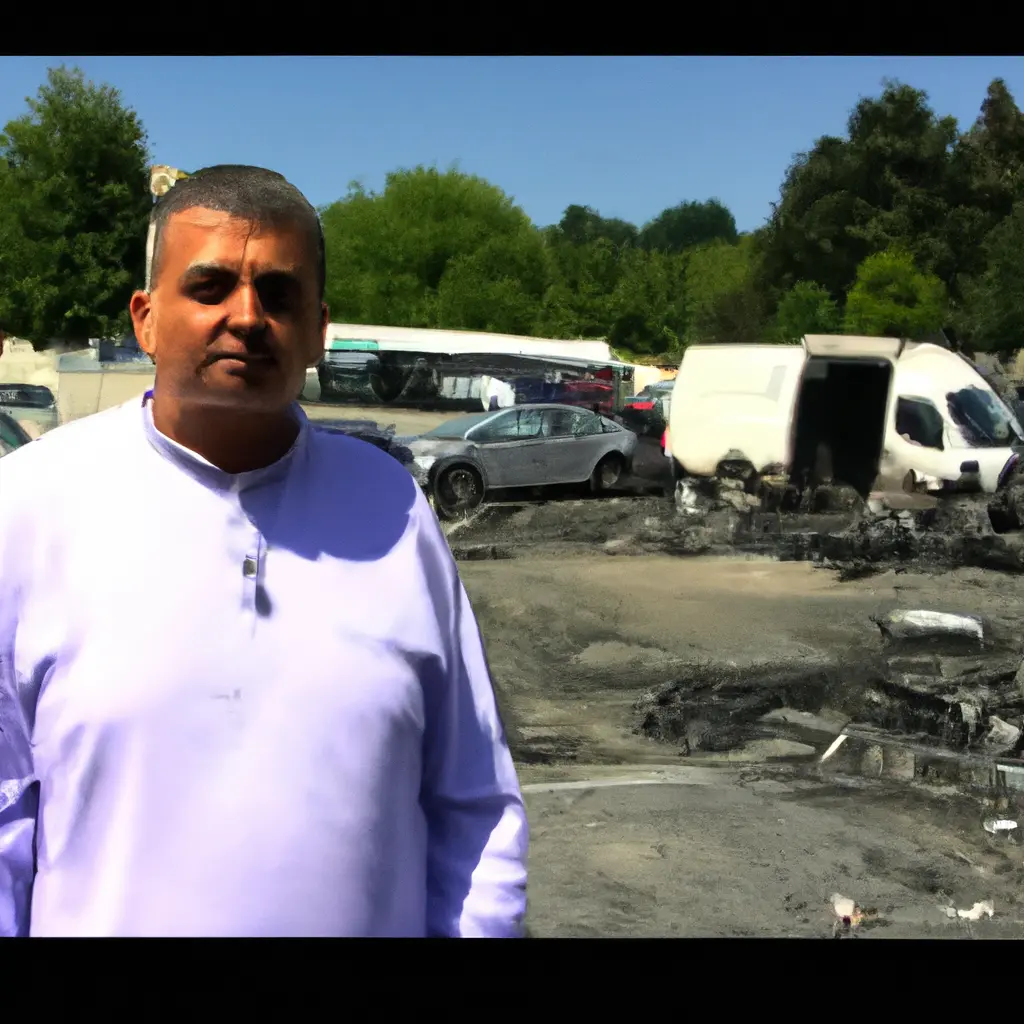Unrest in France: Will Paris prevent a repeat of tensions?

Source image, Getty Images
Image caption, Pablo Picasso's apartment complex in Nanterre, a western suburb of Paris, where 17-year-old Nachel lived with his mother
Restoration of silence in Grigny
The silence has been restored in Grigny, according to Lucy Williamson, BBC correspondent in Paris. The local mafia is back in control of this huge apartment complex in the south of Paris, lazily standing at the entrances, showing their guns, hiding their faces. After days of rioting, the police are not on the horizon. "In some suburbs, they are better armed than we are; they have better weapons," said one of the police officers we spoke to, on the condition that his identity remain hidden. The officer faced rioters in several Paris suburbs over the past week as cities and towns across France erupted in anger after the murder of 17-year-old Nachel. He was shot dead during a police car stop in Nanterre, a western suburb of Paris, and the police officer who fired the shot through the car window is in custody under charges of "premeditated murder." The officer said the riot was "super violent." But the problem between France's suburbs and the police goes much deeper than just random bursts of fireworks and Molotov cocktails. Distrust and resentment smolder beneath the surface in places like La Grande Borne, less visible than the guns carried by gangs but just as ready to explode. "When we intervene in the suburbs, there is fear on both sides," the officer said. "But the police shouldn't be afraid. Fear doesn't help you make good decisions." The question now being asked, from the suburbs to the Elysee Palace, is how to prevent these tensions from reigniting.
Trust and discontent
Jigi Diarra is a filmmaker who grew up in La Grande Borne, one of the poorest housing estates in France. "My first encounter with the police was when I was 10 years old," he explained as we sat on a simple concrete pad he visited as a child, surrounded by high-rise apartment buildings. At that point, France had abandoned community policing, known locally as "proximity policing" - which Gigi believes was a big mistake. "There was no violence, no crime with the proximity police," he said. "The language was beautiful; they respected the people. We need to bring people together so they feel for each other." Now they only come in when there are problems, he added. Gigi, whose name means "hope" in Mali's Bambara language, said he was called "gorilla" and "monkey" by police officers during ID checks.
14 May 2025
13 May 2025




The importance of SMITH lightingG/h3>
This week, French media reported that the police officer accused of killing Nahel told investigators he pulled the trigger because he feared the 17-year-old would drive off and "drag" his police colleague with him. Mchpolice officer, Florian M, also denies threatening to shoot the teen in the head. The shooting and the ensuing riots occupied major headlines in the French media for days. But many believe that media coverage here is just as important as the policing and politics that nurture divisions between the suburbs and the rest of France. "They should be talking about the great stories in the suburbs not just when there are riots," Gigi said. "It will reduce racism and fear of others." And we who live in the suburbs should consider every little brother, every little sister our own. We need to consider every member of this community as our family." Gigi is now working on a new TV series about police in the suburbs of France and said he thinks people outside the suburbs are starting to get into his idea. "When the 'yellow vest' strikes happened, they understood why we in the suburbs say police violence is disgusting. I told them that "better late than never." The "yellow vest" protests that began across France in 2017 sparked a national debate about police violence after some protesters were seriously injured by police. But so far the fire has gone out in the suburbs, and attention to them has fallen. And the huge high-rise buildings that surround France's thriving cities are once again out of sight.
Comment
Popular Posts
Popular Offers

Subscribe to the newsletter from Hatamatata.com!
Subscribe to the newsletter from Hatamatata.com!
I agree to the processing of personal data and confidentiality rules of Hatamatata










